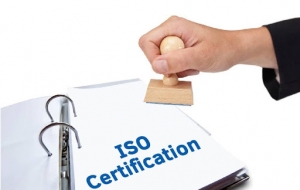You’re a manufacturer, churning out products with precision, but ever feel like you’re racing against a tide of regulations, customer demands, and cutthroat competition? It’s a lot. That’s where ISO certification comes in—a game-changer that streamlines your operations, boosts your reputation, and keeps you ahead of the pack. Whether it’s ISO 9001 for quality, ISO 14001 for environmental responsibility, or ISO 45001 for safety, certification isn’t just a badge; it’s a blueprint for success. So, why should you, the master of the production line, prioritize ISO certification? Let’s unpack the benefits, bust some myths, and show you how it can transform your manufacturing business in 2025.
What’s ISO Certification, and Why’s It a Big Deal?
First off, let’s get clear on what ISO certification means. ISO—short for the International Organization for Standardization—sets globally recognized standards that help businesses run smoother, safer, and greener. Think of standards like ISO 9001 (quality management), ISO 14001 (environmental management), or ISO 45001 (occupational health and safety) as recipes for excellence. ISO certification proves your manufacturing processes meet these standards, verified by an accredited body like BSI or SGS.
Why should you care? Because in 2025, manufacturing isn’t just about making stuff—it’s about making stuff right. Customers want quality, regulators demand compliance, and buyers are obsessed with sustainability. ISO certification is your ticket to meeting those expectations, opening new markets, and standing out in a crowded field. It’s like a seal of approval that says, “We’ve got our act together.”
Here’s the thing: certification isn’t just a hoop to jump through. It’s a tool to make your business leaner, stronger, and more trusted. Ready to see how?
Why Manufacturers Can’t Afford to Skip ISO Certification
You might be thinking, “My products are solid—do I really need ISO certification?” It’s a fair question. You’re already juggling production schedules, supply chains, and tight margins. But here’s the kicker: certification isn’t just paperwork—it’s a strategic move that pays off big time. Let’s break down why it’s a must for manufacturers.
- Boost Efficiency: ISO 9001, for example, helps you streamline processes—think fewer defects, less waste, and faster production. A 2024 DNV study found certified manufacturers cut operational costs by 10-15%.
- Win Customers: Buyers love ISO-certified suppliers. Certification signals quality and reliability, giving you an edge over uncertified competitors. It’s like a trust handshake in a tough market.
- Meet Regulations: ISO standards align with global regulations. ISO 14001, for instance, helps you avoid environmental fines, while ISO 45001 keeps you OSHA-compliant.
- Open Markets: Want to sell in Europe or Asia? Many contracts require ISO certification. Without it, you’re locked out of lucrative deals.
Let me share a quick story. I once worked with a mid-sized manufacturer who thought ISO certification was “too much hassle.” Then, a major client demanded ISO 9001 compliance. They scrambled, failed their first audit, and lost the contract. After getting certified with help from TÜV SÜD, they not only won the client back but also cut defects by 12%, saving €80,000 a year. That’s the power of doing it right.
Busting Myths: ISO Certification Isn’t What You Think
Let’s tackle some misconceptions. Some manufacturers shy away from ISO certification because they think it’s a bureaucratic nightmare or a money pit. Time to set the record straight.
- Myth 1: It’s Only for Big Players
Truth: ISO standards work for manufacturers of all sizes. Small shops can benefit just as much—ISO 9001, for instance, helps streamline even a 20-person operation. - Myth 2: It’s Too Expensive
Truth: Certification costs vary, but they’re dwarfed by the savings. A 2023 SGS report showed certified manufacturers recouped costs within 18 months through efficiency gains. - Myth 3: It’s Just for Show
Truth: ISO certification drives real improvements. ISO 14001 can cut energy use by 10%, while ISO 45001 reduces workplace accidents, per a 2024 Bureau Veritas study.
Still nervous? That’s normal. Change feels daunting, but ISO certification is like upgrading your factory’s machinery—initial effort, long-term gains.
How ISO Certification Fits Your Manufacturing World
As a manufacturer, your days are packed—overseeing production, managing suppliers, and keeping customers happy. So, how does ISO certification fit into your grind? Think of it as a tune-up for your entire operation. Here’s how it slots in.
- Production Efficiency: ISO 9001 helps you map processes, spot bottlenecks—like a slow assembly line—and fix them. It’s like giving your factory a GPS for smoother workflows.
- Supply Chain Control: Certification requires you to vet suppliers for quality or environmental standards. This weeds out unreliable partners, ensuring your raw materials are up to snuff.
- Employee Safety: ISO 45001 focuses on workplace safety. Certification means fewer accidents, lower insurance costs, and happier workers who feel valued.
- Customer Pitch: Certification is a marketing win. When pitching to buyers, you can say, “Our products are ISO 9001-certified, built for quality and consistency.” It’s a brag that closes deals.
Here’s an analogy: ISO certification is like a quality control robot on your production line. It catches flaws early, keeps things running smoothly, and makes your output shine. Without it, you’re rolling the dice.
The Role of Training in ISO Certification
Here’s a twist: ISO certification isn’t just about audits—it’s about knowledge. Training your team (yes, beyond the ISO training course vibe) is key to making certification stick. Providers like Lloyd’s Register or ASQ offer courses tailored for manufacturers, covering standards like ISO 9001 or 14001.
- Why Training Matters: Without it, your team might misinterpret ISO requirements, leading to audit failures. Training clarifies the “how” behind the standards, like setting up a corrective action process.
- What You Learn: Courses cover standard clauses, implementation steps, and audit prep. For example, ISO 9001 training teaches you to measure customer satisfaction, while ISO 14001 dives into waste reduction.
- Who Needs It: Quality managers, production supervisors, and even top brass benefit. A trained supervisor can spot a process gap before it tanks an audit.
Quick tangent: I once met a manufacturer who thought training was a luxury. Their ISO 9001 audit flopped because staff didn’t know the standard. After a two-day course from BSI, they nailed the next audit and cut rework costs by 8%. Training’s like oil for your gears—skip it, and things grind to a halt.
Getting Started: Your ISO Certification Roadmap
Ready to jump in? Awesome. The path to ISO certification can feel like navigating a maze, but here’s a clear roadmap to keep you on track.
- Choose Your Standard
Pick the ISO standard that fits your goals. ISO 9001 is great for quality, ISO 14001 for sustainability, ISO 45001 for safety. Start with one to avoid overwhelm. - Assess Your Gaps
Conduct a gap analysis (or hire a consultant like SGS) to see where your processes fall short. This is like a health checkup for your factory. - Train Your Team
Enroll key staff in training—online courses from ASQ or in-person sessions from TÜV SÜD work well. Focus on roles like quality managers and production leads. - Implement Changes
Update processes to meet the standard, like documenting quality checks for ISO 9001 or safety protocols for ISO 45001. Software like Qualio can help track compliance. - Get Audited
Hire an accredited body (BSI, Bureau Veritas) for your certification audit. Pass it, and you’re certified. Celebrate with your team—they earned it.
Pro tip: don’t rush. Start with one product line or facility, certify it, then scale up. It’s like building a prototype before mass production.
The Bigger Picture: Why ISO Certification Pays Off
Here’s what’s exciting about ISO certification—it’s not just about compliance; it’s about building a better business. Certified manufacturers gain access to new markets, win customer loyalty, and run leaner operations. In 2025, sustainability and quality aren’t buzzwords—they’re dealbreakers. Certification shows you’re listening.
There’s a ripple effect too. Certification forces you to tighten processes, which cuts costs. A 2024 Lloyd’s Register study found ISO 9001-certified manufacturers reduced waste by 10-12%. That’s money back in your pocket. Plus, certification boosts employee morale—workers love knowing their factory meets global standards.
And the cost? Sure, audits and training have upfront costs, but they’re peanuts compared to a failed contract or regulatory fine. A 2023 Intertek report showed certified manufacturers saw a 5-10% revenue bump within two years. That’s growth, not expense.
A Final Nudge: Are You Ready to Lead the Way?
So, here’s the big question: are you ready to make ISO certification your manufacturing superpower? You’re not just making products—you’re building trust, efficiency, and a legacy. Certification proves you’re serious about all three.
Will it take work? Absolutely. Manufacturing’s tough, and change is tougher. But the rewards—global markets, loyal customers, and a leaner operation—are worth every step. So, grab a coffee, check out training from BSI or consultants like SGS, and start your ISO journey. Your factory’s ready to shine, and the world’s waiting. What’s your next move?








